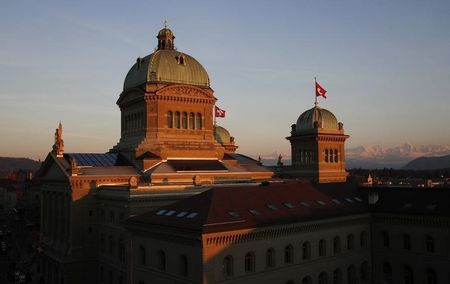ZURICH (Reuters) - A majority of Swiss voters are against proposals to place strict limits on immigration that will be put to a national vote next month, a closely-watched survey showed on Friday.
Fifty-eight percent of Swiss voters are opposed to the initiative, according to a poll conducted by Berne-based research institute gfs.bern, while some 35 percent support it.
These figures, the most reliable published so far, follow an online poll on Tuesday by free Swiss daily newspaper 20 Minuten which showed a narrow majority set to back the initiative.
The vote will be held on Nov. 30, almost 10 months after Switzerland narrowly backed proposals to reintroduce immigration quotas.
The initiative launched by environmentalist group Ecopop seeks to cap the number of new immigrants at just 0.2 percent of the resident population, equivalent to about 16,000 people per year. It would also earmark 10 percent of Switzerland's overseas development aid budget for family planning.
Immigration into Switzerland has been high in recent decades and foreigners account for nearly a quarter of the country's 8 million population.
Opponents of the Ecopop initiative say a vote in favour would sound the death knell for Switzerland's bilateral accords with the EU, which govern trade, agriculture and economic and technological co-operation among other things.
The study, carried out in partnership with Swiss broadcaster SRG, found the most popular argument against the initiative was that it was not compatible with bilateral agreements.
Seven percent of those polled were undecided or gave no answer on how they planned to vote.
The Ecopop camp says there is too much pressure on land and natural resources in Switzerland, tapping into growing concern among residents frustrated by rising rents and crowded public transport.
The Swiss government has said the initiative is not the right way to achieve environmental goals and would damage the economy.

The same gfs.bern poll also showed a proposal to prohibit the Swiss National Bank from selling any of its gold reserves falls short of the support it needs to pass into law.
(Reporting by Joshua Franklin; editing by Andrew Roche)
